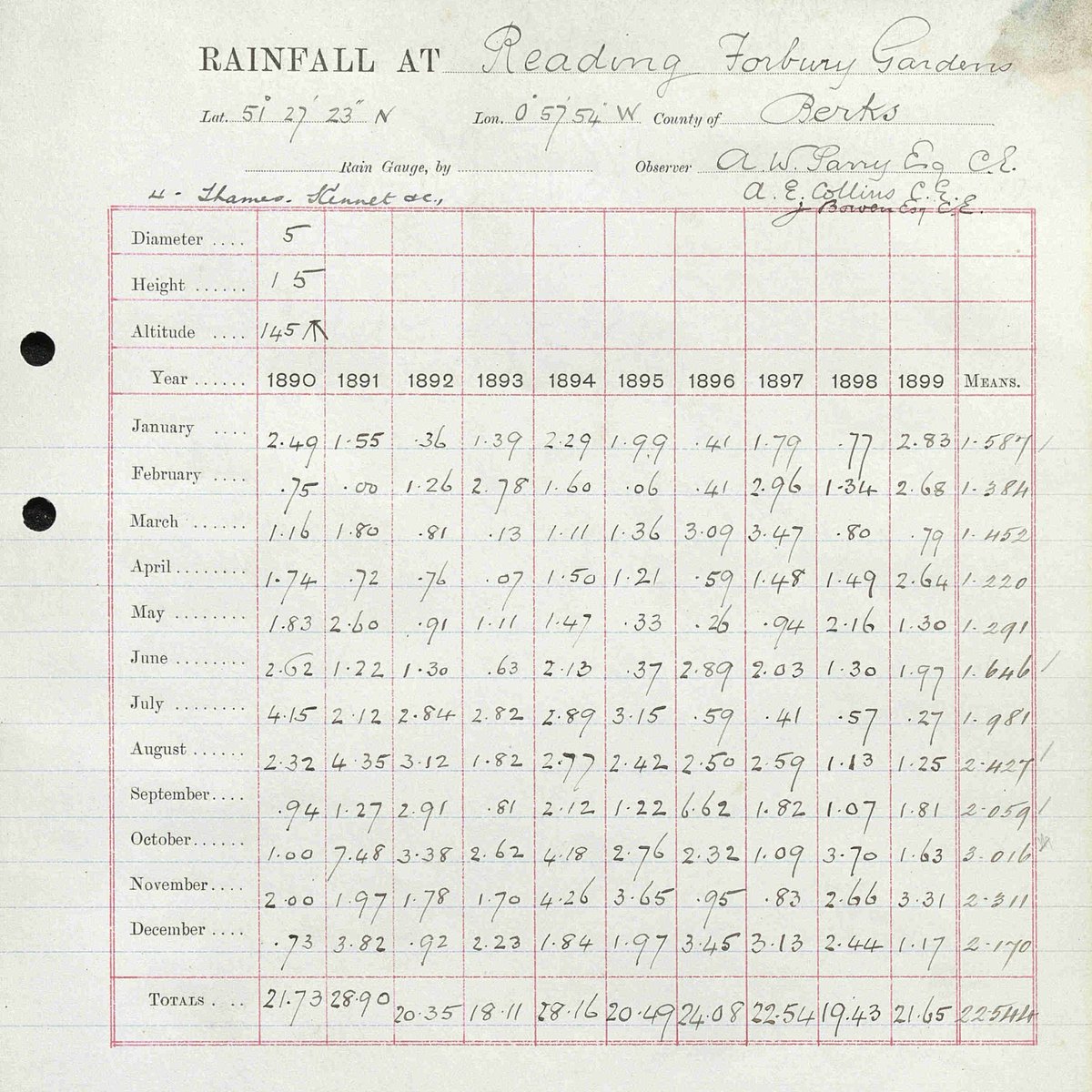Rainfall Rescue Project Update
This blog post provides an update on the Rainfall Rescue project. It explains how 16,000 volunteers typed 100 million keystrokes in 16 days to transcribe 5.28 million measurements. It also discusses the updated dataset, which contains more than 4.9 million measurements.

Ed Hawkins
Climate scientist, NCAS/University of Reading | MBE | Warming Stripes: https://t.co/RHRXsr7zE5 | Views own | Mastadon: https://t.co/m2XBxZKW5E

-
Three years ago, many of you generously donated your time during the pandemic lockdowns to transcribe rainfall observations from 66,000 pages.
— Ed Hawkins (@ed_hawkins) March 29, 2023
16,000 volunteers typed 100 million keystrokes in 16 days to transcribe 5.28 million measurements.https://t.co/1Z0LcM7oBN pic.twitter.com/KePHnMdklR -
Last year the first dataset from the Rainfall Rescue project was released. More then 3.3 million observations had been quality controlled, & located. Importantly, 8 of the dedicated volunteers, who had stayed with the project for 2 years, were co-authors.https://t.co/UUkso4hrHf
— Ed Hawkins (@ed_hawkins) March 29, 2023 -
But, that was not the end. Now, a year later, an updated dataset is available, containing more than 4.9 million measurements.
— Ed Hawkins (@ed_hawkins) March 29, 2023
This has dramatically increased the number of rain gauges with observations from hundreds to thousands over several decades.https://t.co/4Is9Lk9NOA pic.twitter.com/UKfssfnrwy -
We can now reconstruct details of rainfall variations across the UK back to 1836.
— Ed Hawkins (@ed_hawkins) March 29, 2023
The wettest year on record is 1872 and the driest is now 1855 (previously it had been 1887). pic.twitter.com/6ouW4KLYt6 -
Only 5 months have had more than 200mm of rain over the UK, and 3 of those are in the last 15 years.
— Ed Hawkins (@ed_hawkins) March 29, 2023
But the wettest of all is October 1903.
The driest month is August 1947. pic.twitter.com/VXMBYSHGBx -
So, 16,000 volunteers transformed 66,000 pages of handwritten numbers into detailed information about variations & trends in the climate of our islands.
— Ed Hawkins (@ed_hawkins) March 29, 2023
Information about the past is really useful today to, for example, enable a better understanding of plausible weather extremes.
